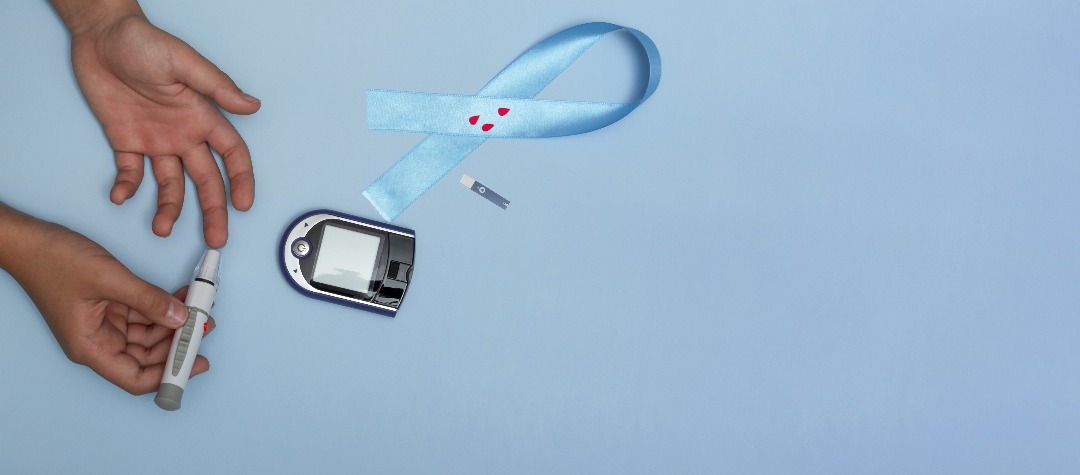Diabetes Awareness: Early Signs You Shouldn’t Ignore
Diabetes is one of the most common chronic illnesses affecting millions worldwide — and its prevalence in Nigeria continues to rise every year. Despite this, many people remain unaware that they have diabetes until complications begin to affect vital organs.
At Tranquil and Quest Specialist Hospital (TQSH), we are committed to raising awareness about early detection and preventive care. Recognizing the warning signs early can help you or your loved ones get the right treatment, avoid complications, and live a healthier life.

Understanding Diabetes
Diabetes occurs when the body cannot properly regulate blood sugar levels. This happens either because the pancreas does not produce enough insulin or because the body cannot effectively use the insulin it produces.
The two most common types include:
Type 1 Diabetes: Usually diagnosed in childhood or adolescence; it is an autoimmune condition where the body attacks its insulin-producing cells.
Type 2 Diabetes: More common in adults and often linked to poor diet, lack of exercise, and obesity. It develops gradually and can go unnoticed for years.
Early Signs You Shouldn’t Ignore
1. Frequent Urination
If you find yourself visiting the bathroom more than usual — especially at night — it might be an early warning sign. When blood sugar levels are high, the kidneys work harder to flush out the excess glucose, causing frequent urination.
2. Excessive Thirst
Because the body loses more water through frequent urination, you may feel constantly thirsty. Persistent thirst, even after drinking enough water, can be a sign of high blood sugar levels.
3. Unexplained Weight Loss
Losing weight without trying can indicate that your body isn’t using glucose properly and is instead breaking down fat and muscle for energy. This symptom is more common in Type 1 diabetes.
4. Persistent Fatigue
If you often feel tired or drained, even after resting, it could mean your body’s cells aren’t getting the energy they need due to a lack of effective insulin function.
5. Blurred Vision
High sugar levels can cause swelling in the eye lenses, leading to temporary blurred vision. Over time, uncontrolled diabetes can cause permanent eye damage known as diabetic retinopathy.
6. Slow-Healing Wounds and Frequent Infections
Cuts, bruises, or wounds that take longer to heal, along with frequent skin or gum infections, may indicate diabetes. High glucose levels weaken the immune system and reduce blood circulation, slowing down recovery.
7. Tingling or Numbness in Hands and Feet
This is known as diabetic neuropathy, a result of nerve damage caused by prolonged high blood sugar. It often starts as a tingling or burning sensation in the extremities.
8. Constant Hunger
Even after eating, you might still feel hungry because your body isn’t efficiently converting glucose into energy, prompting your brain to signal for more food.
“The greatest wealth is health — and early awareness is the first step toward lasting wellness.”
Medical Director, TQSH
Why Early Detection Matters
Left untreated, diabetes can lead to serious complications including heart disease, kidney failure, nerve damage, and vision loss. Early diagnosis allows for lifestyle changes and medical management that can significantly improve quality of life and prevent complications.
At Tranquil and Quest Specialist Hospital, our team of experienced physicians and endocrinologists provide comprehensive diabetes screening, counseling, and management — helping patients live balanced, healthy lives.
How to Lower Your Risk
While genetics play a role, lifestyle choices can greatly influence your risk of developing Type 2 diabetes.
Here’s what you can do:
✅ Maintain a healthy diet with whole grains, fruits, and vegetables.
✅ Exercise regularly — at least 30 minutes most days of the week.
✅ Avoid excessive consumption of sugary drinks and processed foods.
✅ Get regular checkups to monitor your blood sugar and overall health.
✅ Maintain a healthy weight and manage stress levels.
Final Thoughts
Diabetes is not a life sentence — but awareness and early prevention are key to staying healthy.
At Tranquil and Quest Specialist Hospital, we believe that knowledge is power. Through our Preventive Health and Wellness Programs, we provide regular diabetes screenings, nutritional counseling, and lifestyle support to help you take control of your health.
Take charge today. Schedule your diabetes screening at Tranquil and Quest Specialist Hospital — because prevention saves lives.






